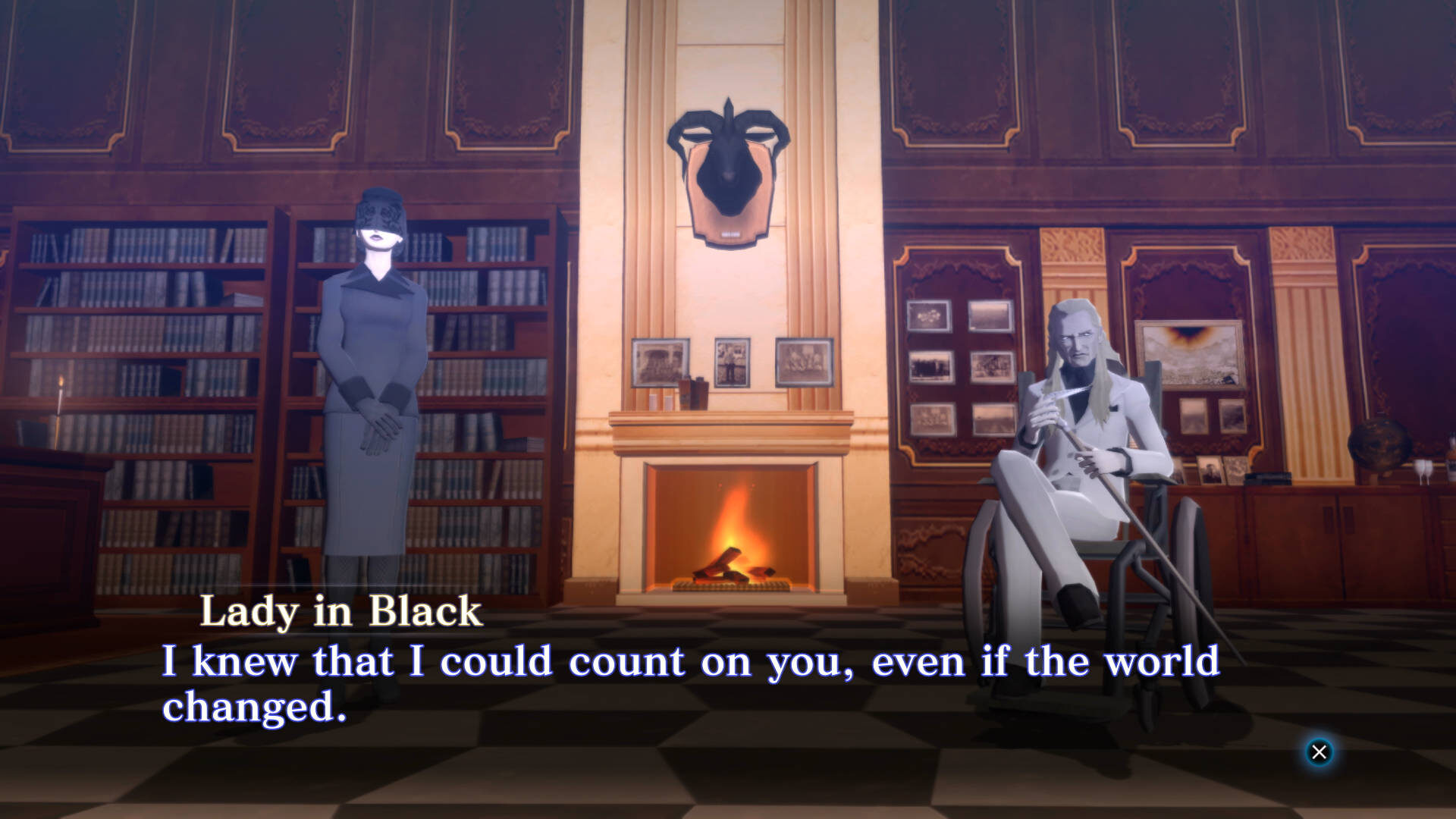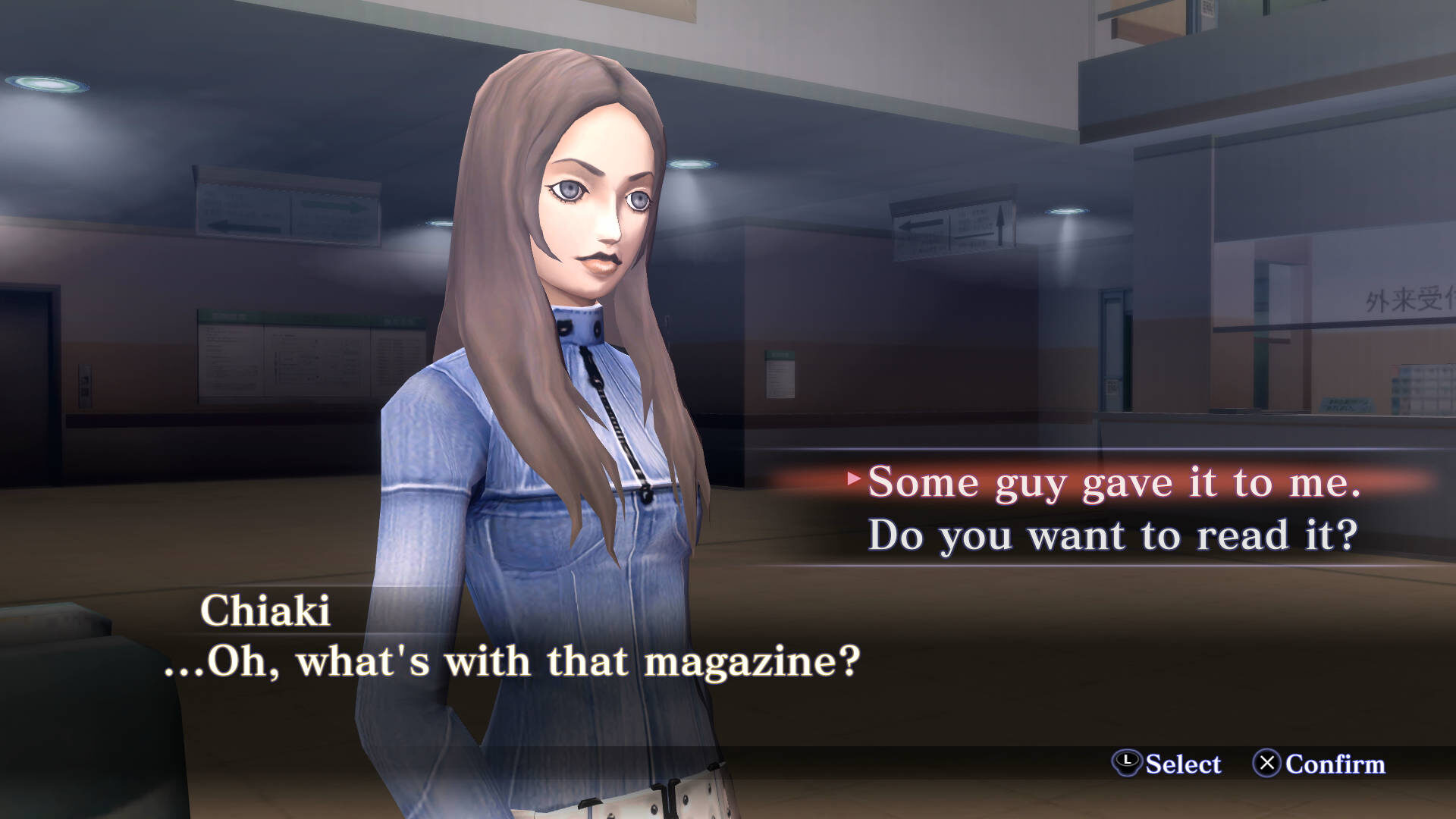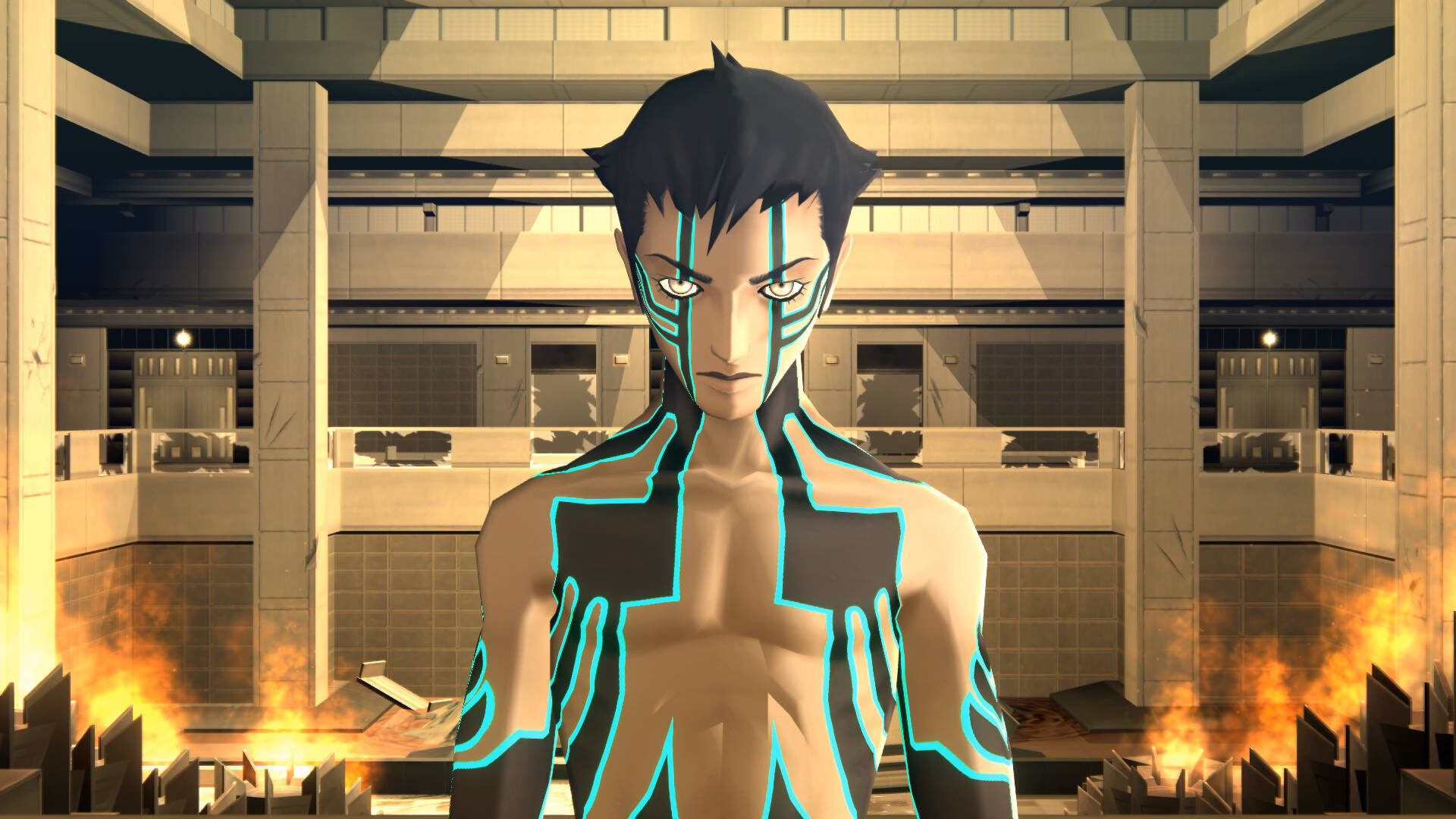Even though I’ve been a fan of Atlus’ groundbreaking Megami Tensei series since before it existed on our shores, I’d never before played the original Nocturne, one of the highest-rated and most beloved titles of the franchise. At long last, I’ve righted that wrong thanks to Shin Megami Tensei III: Nocturne HD Remaster—and it sure has been an interesting experience.
From reviews, to awards, to message board chatter, to now infamous memes, Shin Megami Tensei III: Nocturne has grown to be this nearly mythical title over time. Now that I’ve finally played the reality behind the hype, it’s an unquestionably great game—but maybe not my favorite of the series. Still, what I was quickly reminded of is just how much I adore any classic MegaTen. Nocturne HD Remaster is like an old blanket I’ve had since my childhood: a little dirty, a bit worse for wear, but still comforting and reassuring.

For those who have come to Atlus’s RPGs through the new era of Persona releases, Nocturne HD Remaster may feel cold, cruel, and confusing. Fights are difficult, especially when enemies can one-hit kill your entire party. Stretches of gameplay between save and healing points can feel impossibly long. Knowing where to go or who to talk to next isn’t always easy when compared to more modern offerings in the genre. And yet, all of those elements can work together wonderfully with just a bit of effort on your part, with each point of progression feeling genuinely rewarding. Meanwhile, if you’re a longtime fan, this is just like going home again (even if you’ve never set foot in this particular home).
For those who have avoided not only playing the original, but also any knowledge of it, Shin Megami Tensei III: Nocturne tells the story of a male high school student who gets caught up in an apocalyptic event. After shadowy figures hell-bent on reshaping the world in their own image transform Tokyo into a twisted landscape, our protagonist becomes a demonic being known as the Demi-Fiend. Using his newfound powers, the Demi-Fiend must recruit other demons to his cause, find those who have set in motion the current events, and decide who is friend and who is foe in the fight for the future of humanity.
Gameplay is generally broken up into one of three activities: moving around the world map, exploring buildings and dungeons, and fighting demons and bosses. Nocturne’s combat will feel familiar to anyone who has played almost any of the other MegaTen games, as you and your foes take turns unleashing attacks, utilizing skills, or actually using the items you’re carrying instead of just stockpiling them for “later” like in other RPGs. One of the things I honestly hadn’t realized before going into Nocturne HD Remaster is that this is where the franchise’s trademark “Press Turn” feature first came into play. Each side gets a set amount of actions during each turn, but if you can hit your opponent (or if they hit you) with an attack or spell that targets a particular weakness, you can earn more actions. It’s a system that has offered up a great amount of depth in the combat of later games, and it’s a bit surprising to see how polished the idea already was here in its very first outing.

Of course, killing every demon you come across will get you nowhere, as you’ll need to recruit some of them to aid you in battle. Swaying demons to your side requires a few kind words or (far more often) a hefty bribe, and at any point you can control three demons in your active party with a set amount more waiting in storage. If you know MegaTen, then you know how all of this works, but for those that are new, it’s an engrossing-yet-never-ending circle of recruiting demons, using them for a while as teammates, and then fusing them together to create even more powerful and capable demons. The menagerie of monsters that Atlus has come up with over the years are a fun and lovable bunch, and they especially get to showcase their trademark personality here given so many of the NPCs you’ll run into are demons instead of humans.
(Oh, and let me just say this: Digital Devil Story: Megami Tensei, the first game in the franchise to feature demon recruitment, debuted in 1987. The first Pokémon game, Pocket Monsters Red/Green, wasn’t until 1996. Everyone who calls Nocturne, or any other MegaTen game, “Pokémon-like” is a heretic. )
It’s those demon fusions where Shin Megami Tensei III: Nocturne HD Remaster brings its first big upgrade. Unlike in the game’s original releases, here you can specifically select which skills the demons you’re fusing together will transfer over to their offspring, which was one of the greatest quality of life upgrades to ever come to later games. The visuals are cleaner, higher resolution, and expanded into widescreen, and, man, is it a delight seeing the legendary Kazuma Kaneko’s character designs and art style presented in this nicer format. Nocturne HD Remaster also features some other very welcome additions and improvements, such as both Japanese and English vocal tracks, a revised translation, a Suspend Save option (for when you need to quit but aren’t near a save point), Merciful difficulty for those whose focus is on experiencing the story but not the challenge, and the ability to pick between regular or Maniax versions of the game—which sets the guest character to either Devil May Cry’s Dante, or (the clearly superior) Raidou Kuzunoha from the PS2 Devil Summoner games.

The problem is, I think Nocturne deserved more. On a general level, there are areas of the game the remaster doesn’t touch that it really should have. Exploring the various dungeons can be frustrating because of both the limited movement of the Demi-Fiend (even using the analog stick, he can only move in eight directions) and a camera that is aggressive in resetting itself to certain positions. There’s some weird flickering at times throughout the game, and while skill selection during fusion is definitely nice, you’ll miss out on some other modern features like clearer labelling of enemy weaknesses.
Deeper than that, though, it’s kind of sad seeing the easier remaster route that Atlus took in an era when we’re getting projects like Final Fantasy VII Remake. The company has released five different games based on Persona 4, and four (so far) for Persona 5. I really wish Atlus would have put some of that effort into a full, proper remake for Nocturne. Look, I’m happy that Atlus remembers this game exists and gave us something, and I’d happily snatch up similar remasters for every other PS2 MegaTen release. It’s just, if any game in the franchise deserves some extra care and attention at this point, Nocturne does.
Shin Megami Tensei III: Nocturne HD Remaster is a good remaster for a great classic Japanese RPG, and it’s helped me finally mark off one of the bigger gaming items on my bucket list. While the original Nocturne really could have done with a far more ambitious remake, this is still an admirable effort that helps make the game more playable for a modern era.
My human side worries that Nocturne HD Remaster will still be too unfriendly to new players to attract a sizably larger following, but my demon side says screw ‘em—if it benefits me, then that’s enough.

|
★★★★☆
Shin Megami Tensei III: Nocturne HD Remaster brings back one of the most celebrated and beloved entries from the Megami Tensei franchise nearly 20 years after its original debut. The original Nocturne was a heck of a JRPG in its time, and Atlus has now upgraded it with higher-resolution widescreen visuals, richer vocal tracks, and some much-appreciated quality of life upgrades. Unfortunately, it also misses some areas of the game that equally needed touching up (such as the controls and camera), and it’s hard not to feel like the game deserved a full remake rather than just a remaster. |
Developer Atlus Publisher Atlus ESRB M - Mature Release Date 05.24.2021 |
| Shin Megami Tensei III: Nocturne HD Remaster is available on PlayStation 4, Switch, PC. Primary version played was for PS4. Product was provided by Atlus for the benefit of this coverage. EGM reviews on a scale of one to five stars. | |

Mollie got her start in games media via the crazy world of gaming fanzines, and now works at EGM with the goal of covering all of the weird Japanese and niche releases that nobody else on staff cares about. She’s active in the gaming community on a personal level, and an outspoken voice on topics such as equality in gaming, consumer rights, and good UI. Check her out on Bluesky and Mastodon.